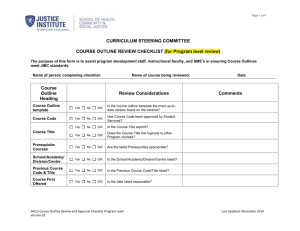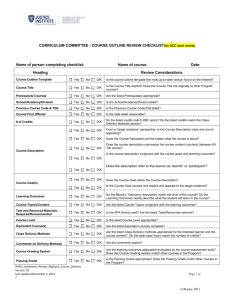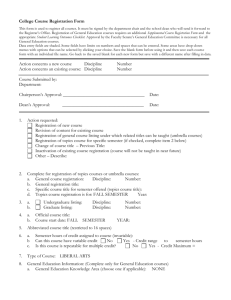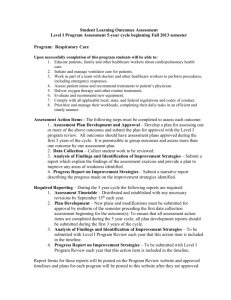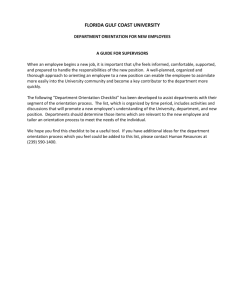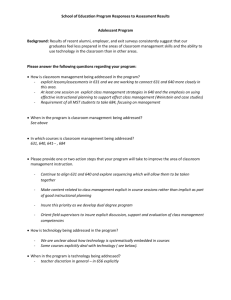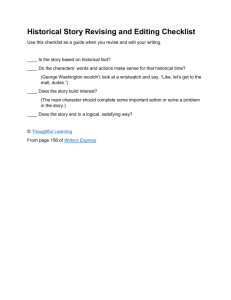FYE good practice principles checklist
advertisement
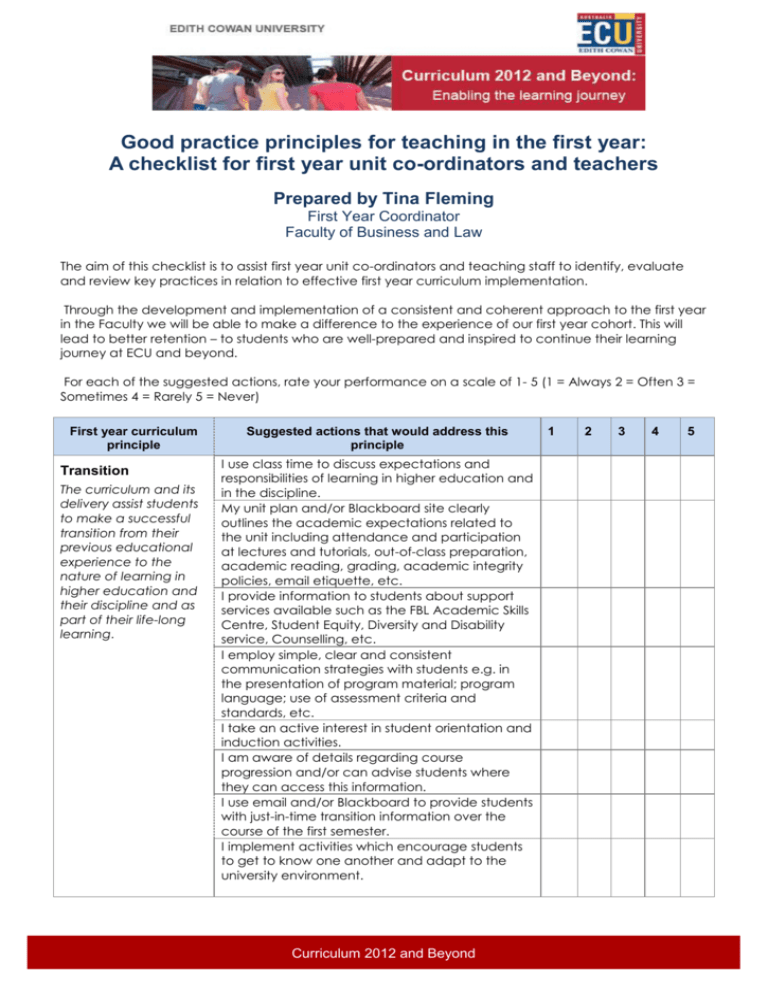
Good practice principles for teaching in the first year: A checklist for first year unit co-ordinators and teachers Prepared by Tina Fleming First Year Coordinator Faculty of Business and Law The aim of this checklist is to assist first year unit co-ordinators and teaching staff to identify, evaluate and review key practices in relation to effective first year curriculum implementation. Through the development and implementation of a consistent and coherent approach to the first year in the Faculty we will be able to make a difference to the experience of our first year cohort. This will lead to better retention – to students who are well-prepared and inspired to continue their learning journey at ECU and beyond. For each of the suggested actions, rate your performance on a scale of 1- 5 (1 = Always 2 = Often 3 = Sometimes 4 = Rarely 5 = Never) First year curriculum principle Transition The curriculum and its delivery assist students to make a successful transition from their previous educational experience to the nature of learning in higher education and their discipline and as part of their life-long learning. Suggested actions that would address this principle I use class time to discuss expectations and responsibilities of learning in higher education and in the discipline. My unit plan and/or Blackboard site clearly outlines the academic expectations related to the unit including attendance and participation at lectures and tutorials, out-of-class preparation, academic reading, grading, academic integrity policies, email etiquette, etc. I provide information to students about support services available such as the FBL Academic Skills Centre, Student Equity, Diversity and Disability service, Counselling, etc. I employ simple, clear and consistent communication strategies with students e.g. in the presentation of program material; program language; use of assessment criteria and standards, etc. I take an active interest in student orientation and induction activities. I am aware of details regarding course progression and/or can advise students where they can access this information. I use email and/or Blackboard to provide students with just-in-time transition information over the course of the first semester. I implement activities which encourage students to get to know one another and adapt to the university environment. Curriculum 2012 and Beyond 1 2 3 4 5 First year curriculum principle Diversity The curriculum recognises that students have special learning needs by reason of their social, cultural, geographic and academic transition. It takes into account students’ backgrounds, needs, experiences and patterns of study and few assumptions are made about existing skills and knowledge. Design First year curriculum design is studentfocused, explicit and relevant in providing the foundation and scaffolding necessary for first year learning success. Engagement Learning, teaching and assessment approaches in the first year curriculum enact engaging and involving curriculum pedagogy and employ active and collaborative learning strategies. Suggested actions that would address this principle I make an effort to find out the background of my students. I am aware of different learning styles and strategies which suit the needs of students from diverse cultural and social backgrounds. I make no assumptions about students’ entry level knowledge, skills and attitudes and recognise that there is likely to be disparity in the academic preparedness of students. I allocate class time to attend to the different needs of students and make allowances for students who require extra time and support with assignments. The curriculum and classroom practice includes and encourages diverse perspectives. At critical times during the semester, I assist students to access relevant university services. I plan and scaffold learning tasks so that students can develop their skills throughout the semester. I focus on providing students with the foundations of knowledge and skills of my discipline. I make explicit to students where this unit sits in relation to their whole course and their future career. I make links between my unit and other units in the first year course of study. I make explicit and embed the teaching of key academic communication skills such as information literacy, critical reading and referencing relevant to my unit. I encourage students to work collaboratively (e.g. in pairs, informal groups, etc) so that they get to know each other and develop a sense of academic and social belonging. I make class time available to help students connect their previous education/experiences with current subject content. I provide students with authentic examples and learning tasks where they can apply theory to practice I provide students with active and engaged learning tasks which encourage deep learning rather than surface learning. I encourage and facilitate teacher-student interactions (e.g. ice-breakers, call students by name, attend co-curricula activities). I make myself available for individual consultations and reply to student queries within a reasonable time frame. Curriculum 2012 and Beyond 1 2 3 4 5 First year curriculum principle Assessment Assessment practices in the first year engage students in learning and assist them to make a successful transition to higher education. Assessment tasks also provide students and staff with regular and timely feedback which helps monitor progress and achievement. Suggested actions that would address this principle 1 The assessment workload in this unit is manageable for both students and staff and an effort is made to schedule tasks in collaboration with other first year units. Assessment tasks are linked to learning outcomes and graduate attributes. I schedule an early piece of formative assessment to be submitted and returned before week 4 to relieve students’ uncertainty and anxiety, provide feedback on progress and identify students in need of extra support. I provide regular and timely feedback/feed forward and employ various feedback/feed forward strategies which address the differing needs of students. I provide clear and explicit assessment criteria for all assessment tasks. I provide opportunities for students to work collaboratively on assessment tasks but ensure that individual performance is rewarded. I provide opportunities for students who do not perform well on assessments to review their work and receive extra support if necessary. This checklist is based on the First year curriculum principles: First year teacher which can be accessed from http://www.csu.edu.au/student/transition/doc/PrinciplesFirstYearTeacher.pdf. Curriculum 2012 and Beyond 2 3 4 5

